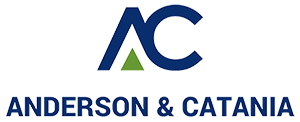Is a Bank Line of Credit Required to Grow Bonding Capacity?
Joe Catania, President of Anderson & Catania Surety Services, explains how bond companies view bank lines of credit.
How does the availability impact the surety bond underwriting process?
A bank line of credit adds extra cushion and comfort to the surety underwriting process. The surety underwriter likes to see the bank support just in case there may be a cash flow crunch on some jobs. Cash flow could be constrained due to delay claims or change orders.
Is the bank underwriting process fundamentally different from the surety bond underwriting process?
The underwriting process for both banks and sureties are similar as they are both creditors. Both banks and sureties run credit, analyze corporate and personal financials, and like to see an operating history of at least two years.
The surety underwriting process is more involved with respect to analyzing work-on-hand schedules. Sureties also put a significant emphasis on references from project owners and suppliers.
Are there any alternative line of credit products that you recommend when a contractor cannot gain approval for a traditional bank line of credit?
Some alternative products would be A/R factoring (accounts receivable factoring) and private lenders. Contractor will likely encounter higher fees for alternative products as compared to traditional bank products.
We see alternate products being used as a last resort when there is a cash flow crunch.
Contact our surety bond specialists at bondrequest@acsurety.com or give us a call to learn more!
(video transcript)
So, your banking relationship is very important, especially for a growing contractor. The typical rule is 10%, that’s what a lot of the retainage starts out. So, for a $5 million project and with a program in the $10 million range, we’d like to see our contractor with a $500k bank line. As he grows, having that relationship can easily increase that line with continued success.

